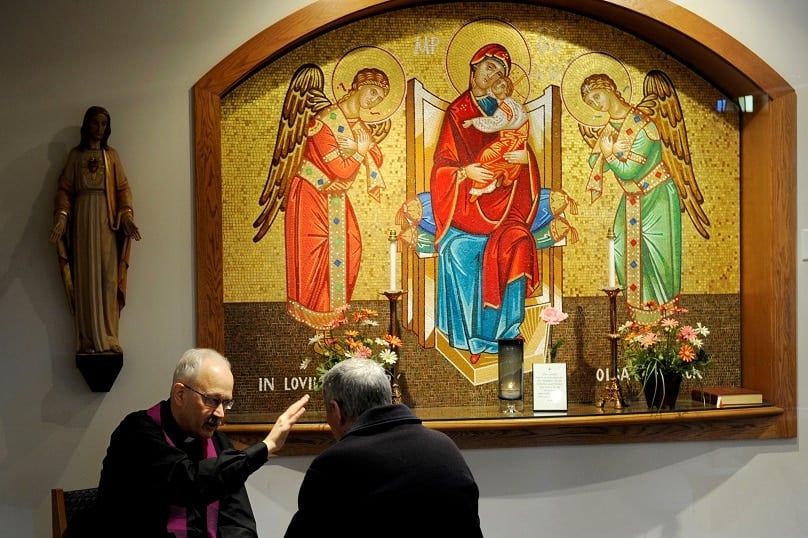
As we saw last time, the approach of Jesus to the death penalty (and his own radically unjust execution) transforms Christian understanding of our relationship to the state. Jesus’ murder at the hands of men who say, “We have no king but Caesar” (John 19:15) sears into Christians the understanding that the state, while necessary to keep order, cannot be the highest authority and can well be an instrument of radical injustice. Consequently, when Paul writes in Romans 13 about respecting the state and Caesar’s right to the sword, it is with the understanding that Caesar is Nero and not Aragorn or King Arthur and that the state, while necessary and better than anarchy, is nonetheless radically imperfect. He’s not dumb enough to think Nero is a saint. And Nero does Paul the favour of proving that point by legally murdering both him and Peter – and a lot of other Christians – a few years after Paul writes Romans 13. Caesar will do that again and again to Christians for the next three centuries.
So while the Church grants a certain place for “retributive justice”, she also, throughout her history, manifests a certain unease with capital punishment as well, in no small part due to the daily spectacle of a liturgy in which the innocent God of the universe is cruelly nailed to a cross by all the powers of earthly “retributive justice”. And one hugely important manifestation of that unease is that, when it becomes a Christian Empire, Rome outlaws crucifixion as a form of capital punishment. Putting people to death in the same way that Jesus was murdered is simply too sore a point for the Christian conscience to confront.
Something else is notable as well: namely, the Church never really acts as though murder demands capital punishment as the only truly just penalty. If it had, there would not stick out like a sore thumb one constant feature of Christian practice throughout the history of the Church: the prescription of penances, not execution, for the crime of murder. This was true, not merely in the centuries before the Empire Christianised and Christians had no power to influence civil law, but afterwards as well.
While still a Catholic, Tertullian wrote (AD 200-6) his De poenitentia in which he distinguishes two kinds of penance, one as a preparation for baptism, the other to obtain forgiveness of certain grievous sins committed after baptism, i.e., apostasy, murder, and adultery.
***
Three kinds of penance are to be distinguished canonical, prescribed by councils or bishops in the form of “canons” for graver offences. This might be either private, i.e., performed secretly or public i.e., performed in the presence of bishop, clergy and people. When accompanied by certain rites as prescribed in the Canons, it was solemn penance. The public penance was not necessarily canonical; it might be undertaken by the penitent of his own accord. Solemn penance, the most severe of all, was inflicted for the worst offences only, notably for adultery, murder, and idolatry, the “capital sins”. The name of penitent was applied especially to those who performed public canonical penance. “There is a harder and more grievous penance, the doers of which are properly called in the Church penitents; they are excluded from participation in the sacraments of the altar, lest by unworthily receiving they eat and drink judgement unto themselves “(St Augustine, De utilitate agendae poenit., ser. cccxxxii, c. iii).
***
To give some idea of the ancient discipline, the penalties attached to graver crimes are cited here from the English and Irish Penitentials. For stealing, Cummian prescribes that a layman shall do one year of penance; a cleric, two; a subdeacon three; a deacon, four; a priest, five; a bishop, six. For murder or perjury, the penance lasted three, five, six, seven, ten or twelve years according to the criminal’s rank.
The death penalty, to put it plainly, stuck in the Christian craw and never quite felt right, even in the long centuries it was still practised. When she could, the Church had a habit of dulling Caesar’s sword. And that eventually permeated Christian conscience. Of which more next time.
